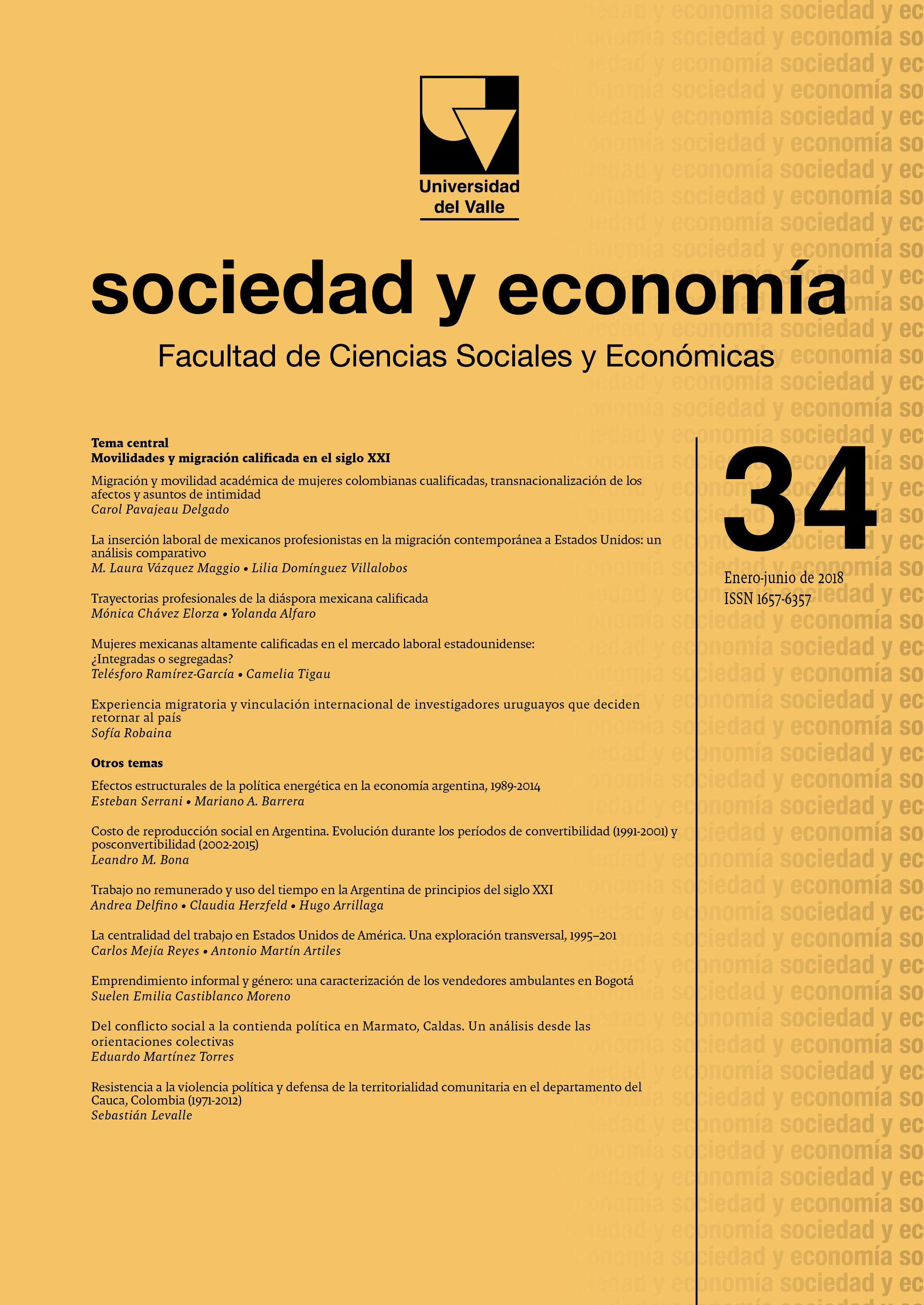Structural effects of energy policy in the Argentine economy, 1989-2014
Keywords:
Hydrocarbons, YPF, Industrial Development, Energy ConsumptionMain Article Content
The objective of this paper is to describe the energy policies developed since the neoliberal reforms until 2014, to determine the structural impacts of these policies on the Argentine economy. The methodology consisted in using secondary sources, such as official legislation and public statistics, and in the reconstruction of the voice of the main actors involved, using statements in graphic media. Moreover, quantitative techniques were deployed to confirm the relationship between the main variables. The work shows how, since the neoliberal reforms of the 1990s, a dynamic of the sector was promoted, which was decoupling the energy supply and demand. In response, the national government promoted imports to bridge the gap, which finally had an im- pact on the macroeconomics, since it accelerated the fiscal deficit, deepened the breakdown of the balance of payments and exacerbated the external restrictions; this situation, more than an energy crisis, would end up causing a crisis of the energy model.
Downloads

This work is licensed under a Creative Commons Attribution-NonCommercial 4.0 International License.
Revista sociedad y economía editada por la Facultad de Ciencias Sociales y Económicas de la Universidad del Valle se encuentra bajo una Licencia Internacional Creative Commons Atribución - No comercial 4.0
Basada en una obra en http://sociedadyeconomia.univalle.edu.co

